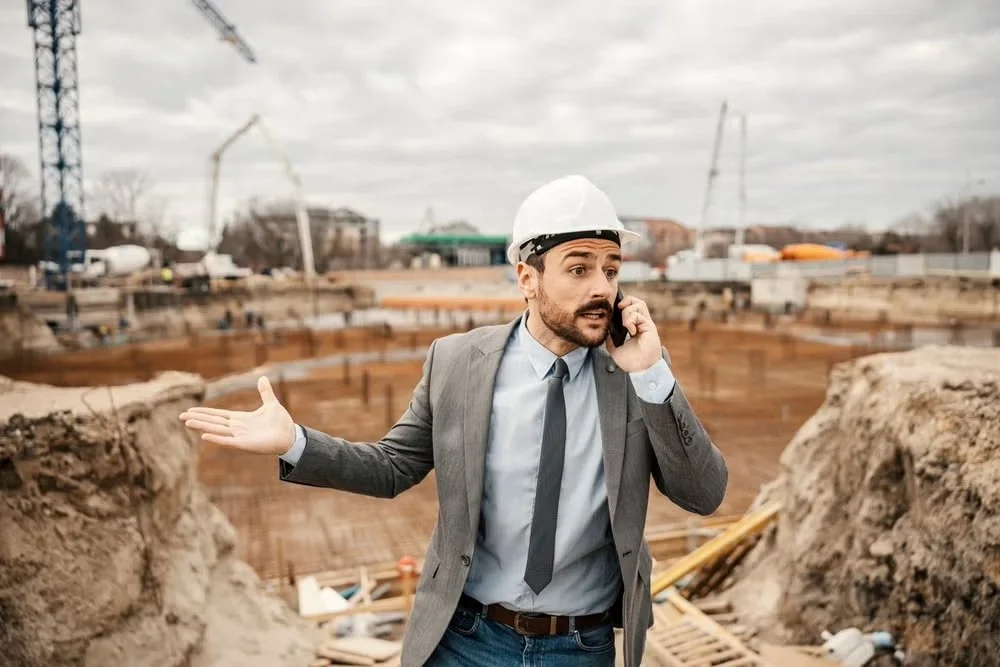
Three Washington, DC Construction Case Studies: The Cost of Permitting Delays
Three Washington, DC Construction Case Studies: The Cost of Permitting Delays
Case Study 1: Capitol Hill Townhouse Renovation
Project Overview
Project Type: Historic townhouse renovation and addition
Location: 400 block of C Street SE, Capitol Hill Historic District
Scope: Kitchen expansion, bathroom renovation, and rear addition
Original Timeline: 8 months (March 2022 - October 2022)
Actual Completion: 14 months (March 2022 - May 2023)
Estimated Delay Costs: $45,000
Permitting Issues and Delays
The project faced a cascade of permitting challenges that extended the timeline by six months. The initial building permit application was rejected twice due to incomplete Historic Preservation Review Board (HPRB) documentation. The homeowner's architect failed to include required sight line studies and material specifications that met historic district guidelines.
After finally receiving HPRB approval, the building permit was delayed an additional eight weeks when DCRA reviewers identified conflicts between the architectural plans and structural engineering drawings. The electrical permit was subsequently held up for four weeks due to panel upgrade requirements that weren't addressed in the original application.
The most significant delay occurred when excavation revealed the need for underpinning work, requiring a new structural permit that took 12 weeks to approve due to incomplete soil analysis documentation.
How Permit Expediting Could Have Helped
A permit expediting firm would have identified the HPRB requirements upfront and ensured all historic district documentation was complete before initial submission. Pre-submission plan reviews would have caught the architectural-structural conflicts, and coordination between disciplines would have been managed proactively.
An expeditor's relationship with DCRA reviewers could have reduced the structural permit approval from 12 weeks to 6-8 weeks through direct communication and proper documentation preparation. The estimated time savings would have been 4-5 months, reducing delay costs to approximately $15,000.
Case Study 2: Dupont Circle Mixed-Use Development
Project Overview
Project Type: 6-story mixed-use building (retail + residential)
Location: Connecticut Avenue NW, Dupont Circle
Scope: New construction with ground-floor retail and 24 residential units
Original Timeline: 24 months (January 2021 - December 2022)
Actual Completion: 32 months (January 2021 - August 2023)
Estimated Delay Costs: $280,000
Permitting Issues and Delays
This complex project encountered multiple regulatory hurdles across several DC agencies. The initial zoning review took 16 weeks instead of the anticipated 8 weeks due to questions about density calculations and parking requirements. The developer's team misinterpreted the zoning regulations, requiring a complete redesign of the ground floor layout.
Building permit approval was delayed by 20 weeks when DCRA identified fire safety code violations in the original design. The sprinkler system layout didn't meet current codes, and emergency egress paths were insufficient for the proposed occupancy levels.
Public space permits from DDOT for sidewalk improvements and a new curb cut took 14 weeks longer than expected due to traffic impact study deficiencies. The original study failed to account for peak-hour pedestrian traffic patterns around the nearby Metro station.
Additional delays occurred when DC Water required upgraded sewer connections that weren't identified in the initial utility coordination, adding another 8 weeks to the approval process.
How Permit Expediting Could Have Helped
An experienced permit expeditor would have conducted thorough zoning analysis before design development, preventing the costly ground-floor redesign. Pre-submission coordination with the Fire Marshal's office would have identified code issues early in the design phase.
Professional traffic impact study preparation and DDOT relationship management could have reduced public space permit delays by 10-12 weeks. Early utility coordination would have identified the DC Water requirements, allowing for concurrent rather than sequential approvals.
The estimated time savings with professional expediting would have been 6-7 months, reducing delay costs to approximately $120,000.
Case Study 3: Navy Yard Office Building Renovation
Project Overview
Project Type: Historic warehouse conversion to modern office space
Location: 1st Street SE, Navy Yard Historic District
Scope: Adaptive reuse of 1920s warehouse into 40,000 sq ft office building
Original Timeline: 18 months (September 2021 - February 2023)
Actual Completion: 26 months (September 2021 - October 2023)
Estimated Delay Costs: $195,000
Permitting Issues and Delays
The adaptive reuse project faced unique challenges combining historic preservation requirements with modern building codes. The Historic Preservation Review Board approval took 18 weeks instead of the expected 10 weeks due to disagreements over window replacement specifications and facade modifications.
Building permit review was complicated by the need to bring the 1920s structure up to current seismic and accessibility codes while maintaining historic character. The initial permit application was rejected after 12 weeks of review when structural engineers' calculations were deemed insufficient for the proposed office loading.
Mechanical permits were delayed 10 weeks when the original HVAC design conflicted with historic preservation requirements for rooftop equipment screening. The system had to be completely redesigned to use internal equipment with minimal exterior impact.
Environmental permits added unexpected delays when soil testing revealed contamination requiring remediation coordination with the Department of Energy and Environment (DOEE), extending the timeline by an additional 16 weeks.
How Permit Expediting Could Have Helped
A permit expeditor with historic preservation expertise would have facilitated early coordination between HPRB and the design team, establishing clear guidelines for window and facade work before detailed design development.
Professional coordination between structural, mechanical, and preservation consultants would have identified code compliance strategies that met both safety and historic requirements. Early environmental due diligence would have identified contamination issues, allowing for concurrent remediation and permit processing.
The estimated time savings would have been 5-6 months, reducing delay costs to approximately $75,000.
Key Takeaways and Benefits of Permit Expediting
Common Delay Patterns
All three case studies demonstrate recurring themes in DC permitting delays:
Incomplete initial submissions due to misunderstanding of regulatory requirements
Poor coordination between multiple agencies and review processes
Inadequate pre-planning for complex regulatory environments
Reactive problem-solving rather than proactive issue identification
Quantified Benefits of Professional Expediting
Across the three projects, professional permit expediting could have delivered:
Average time savings: 5-6 months per project
Cost reduction: 60-70% decrease in delay-related expenses
Improved predictability: More accurate timeline forecasting
Risk mitigation: Early identification of potential regulatory obstacles
Strategic Advantages
Professional permit expediting firms provide:
Regulatory expertise across multiple DC agencies (DCRA, DDOT, HPRB, DOEE)
Established relationships with key reviewers and decision-makers
Process optimization through parallel rather than sequential approvals
Quality assurance via pre-submission plan reviews and compliance checking
Project coordination ensuring all consultants work toward unified regulatory strategy
The combined potential savings across these three projects totaled $310,000 in avoided delay costs, demonstrating the significant return on investment that professional permit expediting can provide for Washington, DC construction projects.




